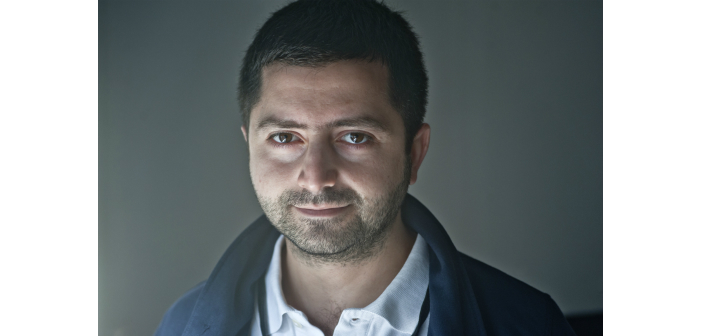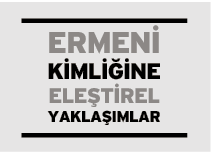Bugün Suriye’deki savaşta insanların dikkatinin özellikle yöneldiği birkaç nokta bulunuyor, Halep de bunlardan biri... Oradaki dinamikleri konuşurken, savaşın ve ülkedeki durumun bütünü için de pek çok şey söylemiş oluyoruz. Sen doğma büyüme bir Haleplisin ve aynı zamanda pek çok prestijli insan hakları örgütüne de Orta Doğu konusunda danışmanlık yapıyorsun dolayısıyla konuşmamıza Halep’ten başlamak yanlış olmaz. Türkiye’de sorulan ve cevabı sıkça tartışılan bir soru var, Halep’teki Ermeniler kimi tutuyor? Esad’ı mı Özgür Suriye Ordusu’nu mu? Kim bu Halepli Ermeniler ve savaşın aktörleriyle ilgili ne düşünüyorlar?
Halep Ermeni toplumu Ermeni Diasporası’nın oluşturucularından biri, baş oluşturucusu diyebiliriz. 1915’te katliamlardan kurtulanlar ilk önce Halep’e gelip yaşadılar, çoğu daha sonra Halep’ten dünyaya dağıldılar. Mesela Arjantin’de ya da Amerika’da yaşayan Ermenilerin büyükbabaları, büyükanneleri Halep’te nasıl yaşamışlardır? Nasıl hayatta kaldılar ve oradan başka yerlere nasıl gittiler sorsanız anlatırlar. Dolayısıyla Halep Ermeni toplumunu bu gerçek üzerinden anlamaya çalışmak gerekir. Bu toplumun Osmanlı’dan da daha eski bir tarihi var. Osmanlılar gelmiş, sonra Fransızlar gelmiş, sonra cumhuriyet dönemi gelmiş. Bu toplum tüm bu süreleri yaşamış. 1915’ten önce orada daha küçük bir toplum vardı, ama vardı yani. Bir toplum geleneği, tarihten gelen bir toplum anlatısı var. Bugün konuşulan o siyasi pazarlıklar, kimi tutuyorsun? Kimin tarafındansın? Bunların kaynağı da dolayısıyla bu önceki dönemle ilgili… Bu konuda bir de şunu anlamamız lazım, azınlıklar genel olarak hep bir kendini koruma çabası içindedirler. O kendini koruyan toplum gidip de bir isyanın koynuna düşemez. İsyancı harekete ya da devrimci harekete gidip de ilk katılanlardan olamaz. Bunu anlamamız lazım, öyle bir gerçek var. Bir hayatta kalma mücadelesi var o toplumda. Ermeni toplumu resmi olarak tarafsız kalacağını ilan etti. “Bir tarafımız yok bizim, bizim tek istediğimiz ülke bölünmesin. Devlet kim olursa olsun ama hâkimiyetini korusun” dediler. Baştan beri bu tür açıklamalarda bulundular. Ancak Ermeni toplumunun krizin başından beri gerçekten nasıl yaşadığını, kendini nasıl koruduğunu pek konuşamıyoruz. Dahası, Türkiye’de bu sorunun sıkça sorulup tartışılması bile aslında cevabı beklemeden bir 'suç' arayışı amacıyla olduğunu hissettiriyor.
Ama Halep’te hâlâ bir toplum var ve resmi söylemin dışında seslerini de duyurmaya çalışıyorlar. Bu yayınları yakından takip ediyorsun, ne anlatıyor bu insanlar?
Evet, orada hâlâ belirli bir toplum var. Parası olmayanlar ve yardımlarla yasamaya devam edenler kaldı. Ya da çok daha az sayıda, çok malı mülkü olup da kaybedeceği çok şey olanlar kaldı. Oradan haber geçen, yazılar yazan birkaç kişi var. Günlük hayatlarını anlatıyorlar. Sadece yerel yayınlarda değil başka mecralarda da yazmaya çalışıyorlar çünkü Halep’te çıkmaya devam eden Ermeni cemaatinin tek yayın organı Kilise’nin çıkardığı haftalık bir gazete. Daha çok kayıt tutmak için yayınlanan bir şeydi. Yani, “Bir tiyatro geldi, başrahip şöyle söyledi, alkışladılar, herkes mutlu, hayat devam ediyor” veya “diploma töreni oldu” türünde haberler. Bunu yapan başka da bir toplum yok. Ancak bu bahsettiğim birkaç kişi yaşlı insanlar. Gençler için zaten düşünmeye teşvik eden bir ortam yoktu. Ermeniler adına yazan, düşünen genç sesler de kayboldu.
Savaşa rağmen oradaki hayatın devam ettiğini gösteren, kayıt düşmek amacıyla üretilen bir yayın yapılıyor dedin. Tamam, bu fena da bir şey değil ama bana Halep gibi bir yerden dünyaya bir şeyler gösterme fırsatı verilseydi sadece gündelik hayata odaklanmazdım.
Ülkedeki kötü durumu da gösteriyorlar elbette, ama tam yapamıyorlar, başaramıyorlar. Eğer sen haftalar boyunca bombalandıktan sonra birkaç gün ortalık durulursa başlıyorsun hayata devam etmeye. Elektriğimiz yok, suyumuz yok, internetimiz yok. O yok, bu yok, para yok ama biz hâlâ tiyatro yapıyoruz, biz hala dans ekibinin antrenmanlarını yapıyoruz. Bunu yapıyoruz, şunu yapıyoruz. Sonra bombalanıyorsun bir defa daha, sonra yine derken haykırmaya başlıyorsun, burada facia yaşanıyor diye. İnsanlar da sana “Ama sen iki hafta önce tiyatro yapıyordun” diyor tabii. Haber tüketicisi anlamıyor yazılanları çünkü anlatılanlar tutarlı değil, bir öyle bir böyle yazıyorlar. Tutarlı bir anlatı üretilmiyor. Bir bağlam yaratamıyorlar, bunun da sebebi az önce verdiğim cevapta anlattığım sebepler...
Daha bu sabah yeni bir haber gördüm, Fırat Kalkanı Harekatı’nda Cerablus’ta kurtarıldığı söylenen bir Ermeni çiftin videosu yayınlanmış, çift Türkiye ordusuna teşekkür ediyordu, buna ne diyorsun?
Böyle bir şey ilk defa olmuyor. Kesab işgali zamanı aynı şey oldu. Kasabada yaşlı insanlar vardı, Özgür Suriye Ordusu onları götürüp rehin aldı. İslamlaştırmaya çalıştılar. Onlar da yaşlı olduklarından ölsek daha iyi dediler. Sonra bu kişileri Türkiye sınırına getirip bıraktılar, oradan Vakıflıköy’deki Ermeniler onları aldı. Ben bu süreci belgeselleştirdim. Suriye konusunda ve Ortadoğu’da genel olarak gayrimüslim azınlıklar rehin durumundalar. Rehin olarak da kendileri bir imaj düzeltme aracı olarak kullanılıyor. Rojava’da da öyle, Kuzey Kürdistan’da da öyle, Ezidiler mesela ya da Asuriler… Suriye’de Esad ve Esad’dan önce babası da azınlıkları imaj için kullanıyordu. Bu azınlık toplulukları da aslında böylece hayatlarına da devam edebiliyorlar. En azından kendilerini koruma altına alıyorlar. Herkes azınlıkları kullanmaya çalışıyor. Ama Suriye’de ılımlı denen muhalefet azınlık konusuyla ilgilenmiyor bile, söylemleri çok bağnaz. Kullandıkları söylemler ve verdikleri mesajlar tamamen mezhepçilik üzerine. Azınlıkları vitrin olarak dahi kullanmaya çalışacak bir kafa yapısı yok. Çok açık bir şekilde Şiilerden ve Sünni olmayan diğer tüm Müslüman azınlıklardan nefret ettiklerini gösteriyorlar. Bu durumda Ermenilere ve diğer Hıristiyanlara yönelik düşüncelerini varın siz düşünün. IŞİD hakkında çok haber duyuyoruz, 'IŞİD yüz Süryani’yi kaçırdı', 'IŞİD Ezidilere zulüm ediyor' veya 'IŞİD Hıristiyanlara soykırım yapıyor' şeklinde haberler bunlar... Ama aynı zamanda, Özgür Suriye Ordusu denilen grup ve diğer cihatçı gruplarla bu anlamda IŞİD arasında çok az fark olduğunu ve hatta hemen hemen hiç fark olmadığını görüyoruz. Mesela bu 'ılımlı' muhalif gruplar Kesab'a girdiklerinde kiliseleri yaktılar. Malula'ya girdiler ki burada hala Aramice konuşan kadim bir Hıristiyan toplumu var. Orayı da gidip mahvettiler. Benzer çok örnek var. Hıristiyanlara karşı böyle şiddet uyguladıktan sonra bu söz konusu grupların şimdi çıkıp da onları adeta bir vitrin dekoru gibi kullanmaları çok komik... Onlar mesajlarını zaten daha başlangıçta vermişlerdi. Şimdi imajlarını kurtarmaya çalışıyorlar ama işe yaramıyor. Çünkü herkes onların ne düşündüğünü, neler yaptığını biliyor. Kesab işgalinde cihatçı grupların Türkiye tarafından desteklendiğini, bu grupların Kesab'a Türkiye topraklarından giriş yaptığını biliyoruz. Bu demek oluyor ki Kesab operasyonu Türkiye'nin himayesinde yapılan bir operasyondu. Şimdi Fırat Kalkanı Harekatı var, Cerablus'a girip sanki bölgedeki Hıristiyanlara da iyilik yapılıyormuş gibi gösterilmesi artık çok tüketilmiş bir taktik. Bunu artık kimse satın almıyor.
Suriye’de özel olarak Ermeniler ve genel olarak Hıristiyanlar üzerine üretilen anlatının, Türkiye veya Batı’yla ilişkilerin durumuna göre şekilden şekle girdiğini söyleyebiliriz. Sen bu konuda ne düşünüyorsun?
Devlet anlatımında zaten Hıristiyanlar kullanılageldi. 1980’lerde ve 90’larda Suriye-Türkiye arasında sorunlar ortaya çıkınca Ermeni Soykırımı hakkında konuşulurdu, dizilerde Ermeniler geçerdi, soykırım sahneleri kullanılırdı, Ermeniler dürüst ve çalışkan kişiler olarak gösterilir, kötü Türkler imajı böyle yayılırdı. Bunlarda bir yalan yok, Soykırım’dan kurtulan o nesiller ellerinde hiçbir şeyleri olmadan Suriye’ye gelip burada bir toplum inşa ettiler. Ama bu konular Türkiye’yle sorun olduğu zaman ortaya çıkıyor, Türkiye’yle aralar düzeldiğinde tamamen sansüre uğruyor. Mesela 2000’lerin başında ta 2011’e kadar iki ülke arasındaki ilişkiler çok iyiydi. O zamanlar Erdoğan’la Esad birlikte seyahatlere çıkıp ailece görüşüyorlardı. O zamanlarda soykırım meselesi zaten hiç ortada yoktu. Ondan sonra yine ortaya çıktı bu konu. Esad son dönemde verdiği röportajlarda, “Zaten Türkler Ermenileri de katletmişler” diye cümleler kullanmaya başladı, şimdi işine de geliyor bunlar. Bu şekilde Ermenileri ve Hıristiyanları yanına çekmeye çalışıyor ki halk düzeyinde başarılı da oluyor. Ülkede isyanlar başladığında zaten devlet yoğun bir şekilde azınlıkları harekete geçirmeye başladı. Yürüyüşler düzenlendi ve azınlıklar Esad yanlısı gösterildi. Sonuçta devletten memnun olmayan kesimin büyük çoğunluğu Sünni Müslüman, ben demiyorum ki Esad'ı destekleyen Sünni yok, evet, çok var, ama devrimi destekleyen kesim sadece Sünnilerden oluşuyor, orada azınlıklar yok. Ama devleti destekleyen kesimde çeşitli arka planlardan kişileri görebiliyorsunuz. Şimdi Esad'ın azınlıklarla ilgili yürüttüğü bu çalışmadan sonra devrimi destekleyen Sünni kesimde azınlıklara karşı önyargı büyüdü. Türkiye'nin bu Sünni gruplara desteğinin artmasıyla beraber, 90'larda Suriye'de o bahsettiğim dizilerle falan oluşturulan ve haliyle ülkedeki Sünni kesimin de algısında var olan 'kötü Türk' imajı değişti. Türkiye'de Ermeniler için kullanılan "1915’te asıl onlar bizi sattı, Ruslarla birlik olup bizi arkamızdan hançerlediler" söylemi döndü dolaştı Suriye'deki devrim yanlısı Sünni kesim tarafından ülkedeki Ermeniler için de kullanılmaya başlandı. Bir yandan da Esad, Ermenileri ve Hıristiyanları kendi propagandası için kullanıyor, bu iki söylem adeta birbirini tamamladı ama bu Ermenilerin ve diğer Hıristiyanların aleyhine oldu. Devlet, Hıristiyanları yanında göstermek istiyordu, muhalefetse zaten Hıristiyanlardan kurtulmak istiyordu, bunlar tencere kapak oldu. Özellikle Ermeniler olmak üzere Hıristiyanlar da böylece bugünkü durumlarına sıkışmış oldular.
Rojava’da IŞİD’e karşı savaşan grupların büyük çoğunluğu Kürtlerden oluşsa da mesela aralarında Süryanilerin oluşturduğu Sutoro, Süryani Askeri Meclisi gibi birlikler de var. Bölgede radikal İslamcı bir tehlike varken Ermeniler de benzer bir hareketin içine giriyor mu? Kürtlerin Hıristiyanlarla birlikte savaşma isteğini nasıl görüyorsun?
Rojava’da, Kamışlı’da yaşayan bir Ermeni toplumu var. Orada da Ermeni gençleri savaşmayıp kendi mahallelerini koruyorlar. Ön saflarda gidip savaştıklarını göremezsin.
Şimdi, Suriye’deki savaşta Kürtlerin de düşmanlaştırıldığını görüyoruz. Çünkü Suriye’deki muhalefet, ister İstanbul’da veya Gaziantep’te bulunan muhalefet olsun, isterse de Suriye’de sahada bulunan cihatçılar olsun, yani kendini en liberal gösterenden en cihatçıya kadar tamamen bir Türkiye aşkıyla yaşıyorlar. Çünkü Türkiye’den maddi, manevi her türlü desteği alıyorlar. Türkiye eğer Kürtleri düşmanlaştırmışsa zaten Kürtler otomatik olarak bu grupların da düşmanı oluyor. Bugün Suriye’de muhaliflerin kontrolünde bulunan yerlerde Hıristiyan olmak kadar Kürt olmak da bir suçtur, kabahattir. Kürtsen zaten senden kuşkulanıyorlar. Hatta geçen hafta bir video dolaşıma girdi. Muhalifler Halep’te bir yere giriyorlar, orada gördükleri sivilleri sorguya çekiyorlar, “Kürt müsünüz?” diye soruyorlar hemen, insanlar da telaşla onları kendilerinin Kürt olmadığına inandırmaya çalışıyordu. Bu Türkiye yüzünden oluşan ve Kürtlere yönelik çeşitli suçlamalarla geliştirilen bir söylem ortaya çıkardı. “Neden Kürtler IŞİD’e karşı savaşıyorlar da Esad’a karşı savaşmıyorlar?” Böyle şeyler söyleniyor ki bu çok komik bir soru, IŞİD gelip silip süpürecek, ortalığı mahvedecek, kadınları alacak, çocukları cihatçı yapacak, geriye kalanları katledecek. Bildiğiniz kötülük mü bilmediğiniz kötülük mü? Tabii ki bildiğiniz kötülük. Kürtlere karşı çeşitli yollarla üretilmiş bir nefret söylemi var. Halep’teki Şeyh Maksut Kürt mahallesi muhalifler tarafından öyle bombalandı ki, o kadar çok sivil öldü ki toplam sayıyı bilmek imkansız, ama bu medyada yer bulamadı. Muhalifler bugün Suriye devletinin kontrolünde olan Hıristiyan mahallelerini yine bombalıyorlar. Buralara ‘Esad karargâhı’ deniyor ama oralarda sıradan insanlar yaşıyor. Bunlar da çıkmıyor medyada.
Neden böyle bir şey oluyor?
Çünkü bugün şöyle bir durum var; Rusya ve ABD bölgede birbirine girdiği için, mesela CNN muhabiri bölgeden böyle bir haber yapmaya çekinebiliyor. Çünkü Putin yanlısı olarak algılanmak istemiyor. Bir de söylemem gerekir, ilk yıldan itibaren muhalifleri o kadar çok övdüler ki şimdi artık muhalefet bu kadar kötüleştikten sonra bu medya organlarının yüzü yok, asıl “biz övdük şimdi de kınıyoruz” diye haberler yaparak kendilerini anlatmaları lazım. Ama şu an buna güçleri yok. Bir de sayılar vererek kıyaslama yapanlar var. Muhalefet 10 kişi öldürdü ama Esad 150 kişi öldürdü diyorlar. Sorun kimi ne kadar sivil öldürdüğüne dair verilen rakamlarla ortaya çıkan oranlarda değil, sorun niyette. Muhaliflerin eline hava gücü verirsen ne yapacaklar? Muhaliflerin insan haklarını hiçe sayıp uluslararası insani hukuku ihlal etme niyeti zaten yaşanan çok sayıda olayla ispatlandı. Hem Esad hem de muhalefet kuşatma ve aç bırakma yöntemleriyle savaş yürütüyor. Devletin kontrolünde olan Batı Halep muhalefet tarafından aylarca kuşatılırken, oradaki insanlar aç bırakıldı ve bunu kimse yazmadı. Bugün Foa ve Keferya adlı iki Şii bölgesi hâlâ kuşatma altında. İnsanlar da açlık içinde yaşamaya çalışıyor. Burada rakam nasıl önemli olabilir, önemli olan bu grupların niyeti.
Bugün ılımlı muhalefet olarak adlandırılan grupların Suriye’deki Sünni olmayan grupları ülkeden kovup mallarına da el koymaya yönelik bir söylemi var. Buna ne diyorsun?
Devrimin başlarında bu söylem o kadar da kuvvetli değildi. Çünkü özgür düşünenler, liberaller veya solcular da vardır muhalefetin içinde. Şimdi kendine liberal diyen de en azılı cihatçıyla el sıkışabiliyor. “Aleviler tabuta, Hıristiyanlar Beyrut’a...” Bu isyanın daha ilk günlerinde ortaya çıkmış bir slogan ve hâlâ geçerli... Ama o günlerde muhalefette farklı görüşte insanlar da bulunduğu için kınanıyordu. Muhalefet silah taşımaya başlayıp militarize olunca bu söylem daha da çok kullanılır hale geldi. Ancak söylemem gerek, Kürtler de bu toplumları, imaj için kullanabiliyorlar. Onların da Hıristiyanların ne olacağı çok da derdi olmayabiliyor. Kürtlerin de bölgede yaptığı insan hakkı ihlalleri yok değil. Çocuklara silah verip savaştırıyorlar. Çoğu Arap yerleşim yerlerinde insanları evlerinden çıkarıyorlar ve bölgeyi Kürtleştiriyorlar. Bir grubu alıp kutsallaştırmaya karşıyım açıkçası. Çünkü ona değer bir kitle ya da grup yok. Suriye trajedisinin uzamasının gerçek sebebi de galiba budur.





